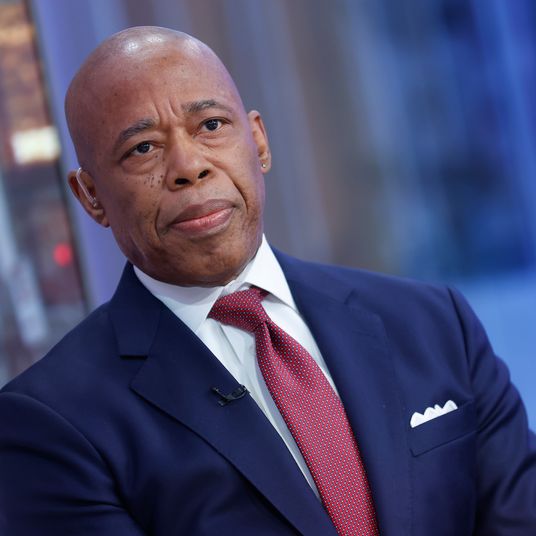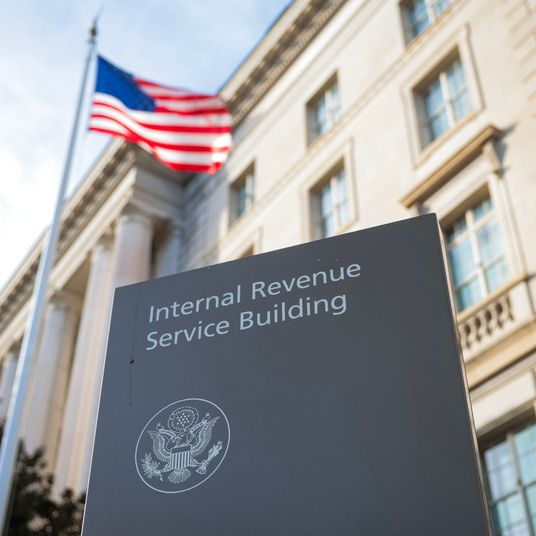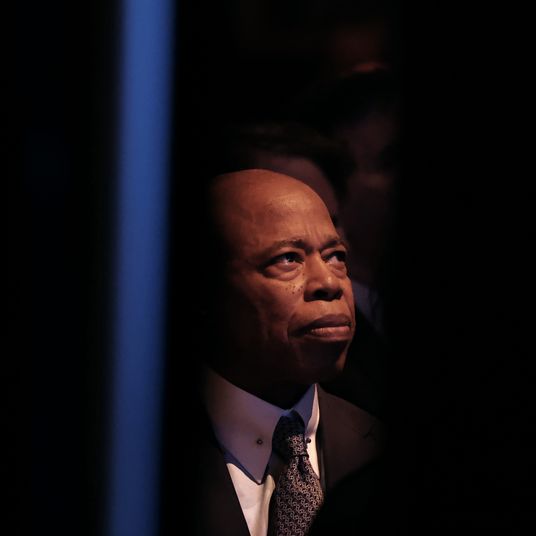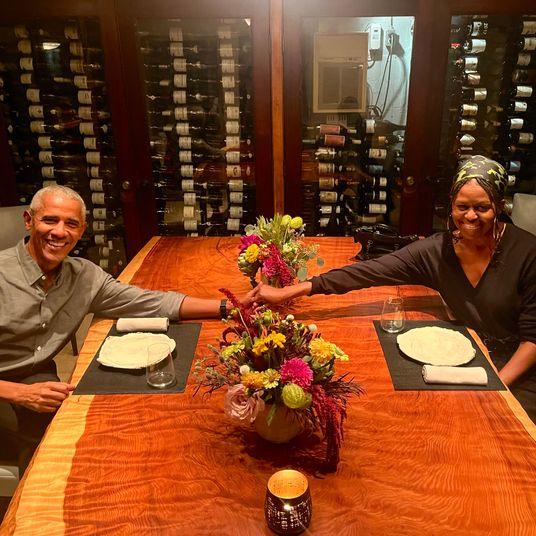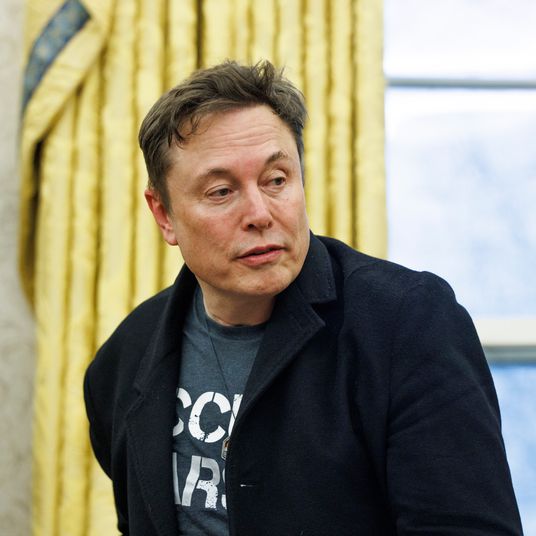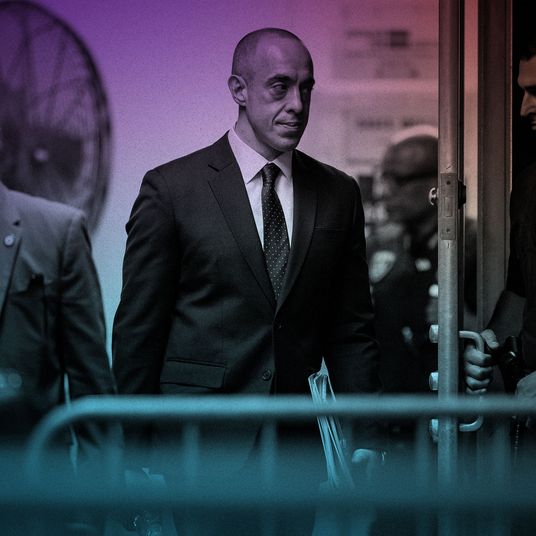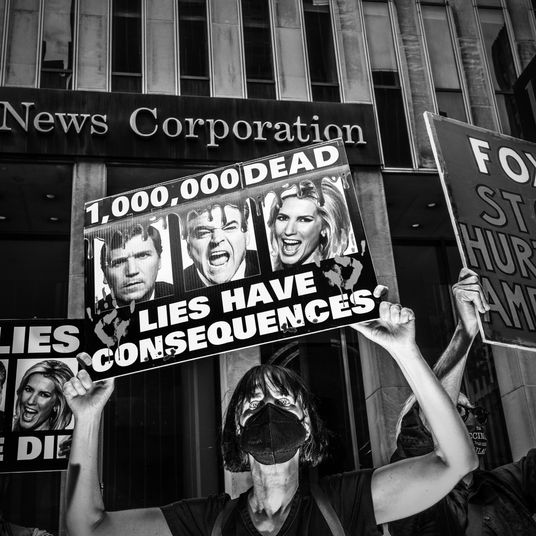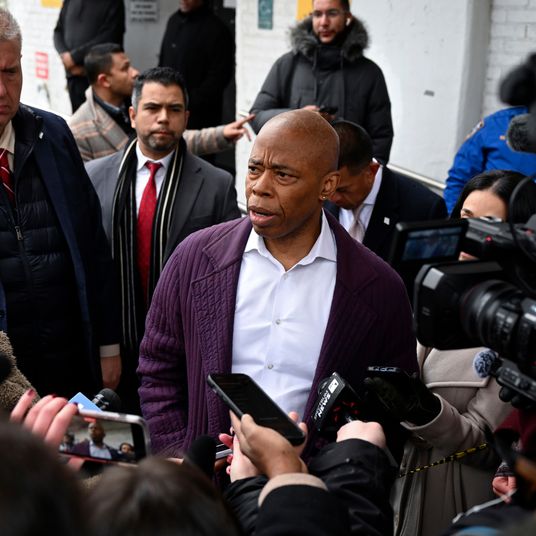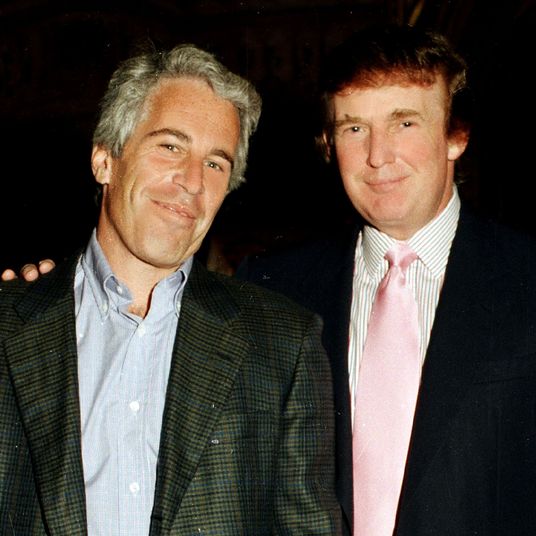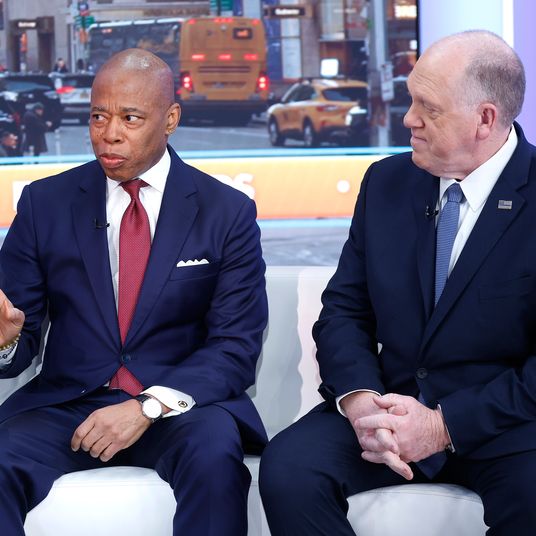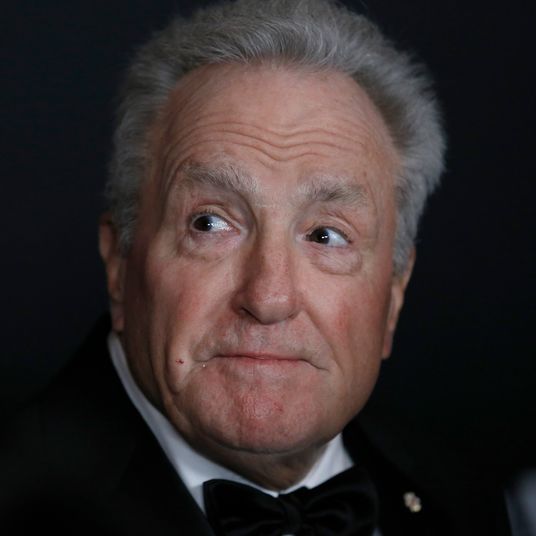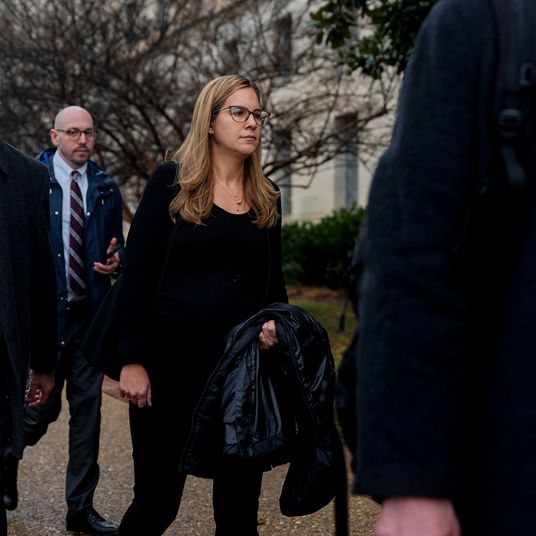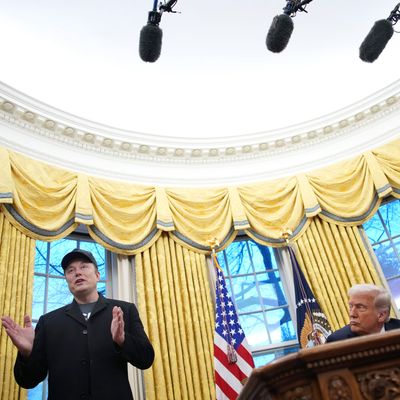
Donald Trump and his MAGA movement frequently claim to act under the guidance and protection of the Christian version of God Almighty, just as they claim their predecessors and opponents are hostile to the divine will and determined to close churches and persecute believers. Yet one of the hallmarks of Trump 2.0 so far has been a willingness to divide Christians by unconditional demands for obedience to the Boss in Washington rather than the one in Heaven. First, Trump blasted liberal Christians like Episcopal bishop Mariann Budde, who simply asked the 47th president to be merciful toward the target of his fury (i.e., LGBTQ+ folk and undocumented immigrants). Then Vice-President J.D. Vance and “border czar” Tom Homan went after their own Catholic Church for failure to sufficiently cooperate with Trump’s mass-deportation plans, provoking a stern encyclical from Pope Francis asserting the Church’s traditional stance on the compassion owed to refugees and other “strangers.”
But Trump’s freeze on foreign aid and Elon Musk’s attempts to shut down USAID as a “criminal enterprise” have generated a backlash among some voices within his conservative-Evangelical base. After all, many of them had spent years fighting for the right to receive federal dollars for the educational and charitable work their own missions dictated despite differences with key federal policies (particularly under Democratic administrations). One of their staunchest warriors, longtime “religious liberty” litigator David French, now an op-ed columnist at the New York Times, has fired back not only at the administration but at fellow Evangelicals who are cheering it on:
There are few things more symbolic of the decline of the Republican Party than this radical turn against humanitarian aid. And it’s not just a turn within the Republican Party; it’s a turn within the evangelical church.
It took a generation of legal and political argument (often from Christian conservatives) before the federal government began supporting Christian aid organizations. And now this entire edifice of humanitarian aid threatens to come crashing down.
This isn’t just a matter of defending hard-won conservative-Christian turf against a weird new ideological bender. It goes to core tenets of Christian belief, says French:
I understand the desire of many Americans not to fund ideological projects that run counter to their values. But Christians are turning on the programs and groups that they helped create. That won’t solve our budget crisis. It won’t end the culture war. It will, however, harm the people Scripture commands us to care for.
There is nothing woke about medicine or food.
The attack on humanitarian assistance really exposes the difference between Christian MAGA enthusiasts and the ancient traditions of Christian Universalism. Across much of the spectrum of Christian belief, from Catholicism to Protestantism and from social-gospel progressives to fundamentalist conservatives, there remains an imperative to serve the poor and the vulnerable no matter where they are found. And even self-styled Christian nationalists, who dislike church-state separation and have no problem with a federal government openly espousing sectarian values, don’t think this “Christian Nation” is their sole mission field. When treated as a paramount principle, “America First” is not compatible with basic Christian doctrine, which is one point on which Budde, Francis, and French would agree.
Continued efforts to divide Christians between sheep who follow Trump and goats who follow the Good Shepherd may cast a renewed spotlight on exactly how godly this administration really is. The conservative-Evangelical writer Russell Moore (who split with his own Southern Baptist denomination over its subordination to Trump’s political agenda), writing about some of the same concerns expressed by French, draws attention to the worldview of Musk and much of the federal government:
Several years ago, Elon Musk told Axios journalists Mike Allen and Jim VandeHei that human beings “must merge with machines to overcome the ‘existential threat’ of artificial intelligence.” When pressed about what this means for our sense of reality, Musk said that we should question whether reality is itself real. “We are most likely in a simulation.”
Jesus is not easily silenced. The universe is no simulation. It is created and held together not by an algorithm but by a Word. And this Word is no abstraction to be decoded but a person, one who “became flesh and dwelt among us” (John 1:14). A million different Babels lie in the ruins of history, and behind them a million different Nimrods, all of whom would storm the limits of mortality and of accountability to create simulations of themselves and of their rule. They are all gone, and they cannot be rebooted.
Musk’s co-president and enabler, Donald Trump, has built his Evangelical constituency by convincing it (or, more accurately, letting it convince itself) that, despite his lack of piety or understanding of Christian teachings, he is an essential accessory to its own goals in public policy. As he discards these goals (whether it’s a determination to make abortion illegal or to create a world safe for Christian missionary activity), Evangelicals, like Catholics and liberal Protestants, will have to ask themselves if they are members of a universal church of believers or of an American State Church devoted to Trump (as my colleague Sarah Jones has suggested he is building) rather than followers of the inconveniently compassionate Jesus Christ.
More on Politics
- Judge Orders Adams, DOJ to Explain Themselves: Updates
- Elon Musk and GOP Pretend No One Is Responsible for DOGE Chaos
- Trump Cabinet Confirmation Hearings: Schedule & How to Watch






